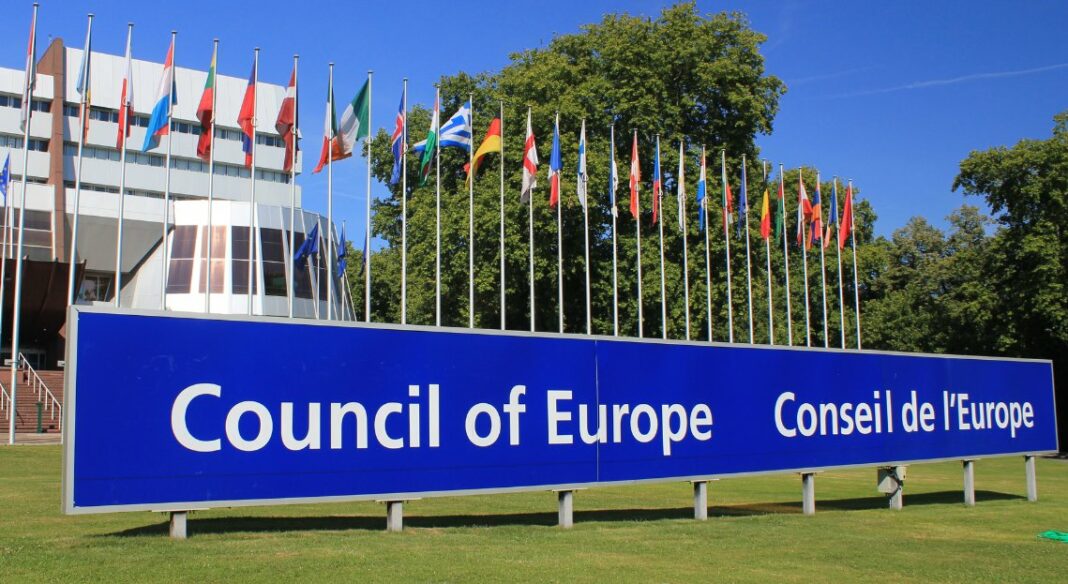The Council of Europe’s (CoE) Committee of Ministers, in its quarterly meeting December 5-7, addressed Turkey’s non-compliance with European Court of Human Rights (ECtHR) rulings in the cases of jailed Kurdish leader Selahattin Demirtaş and Osman Kavala, a prominent Turkish philanthropist and businessman who has been in jail since 2017, and strongly urged the Turkish government to release them.
In the cases of Demirtaş and Kavala, the committee expressed profound regret over their continued detention. The committee recalled the ECtHR’s findings that their detentions lacked sufficient evidence and were in pursuit of ulterior motives. The CoE underscored the need for Turkey to honor its obligations under the European Convention on Human Rights (ECHR).
For Demirtaş, the committee noted that while Turkish authorities released him after dropping the initial charges levied against him, he remains detained on different charges. The ECtHR and the committee had previously rejected the argument that since Demirtaş is now imprisoned on other charges, the ECtHR’s decision would not apply. The committee called on Turkey’s Constitutional Court to expedite its review of Demirtaş’s ongoing detention.
Regarding Kavala, the committee highlighted that his ongoing detention, even after being convicted of attempting to overthrow the government, continues to violate the ECHR. The committee emphasized that the Constitutional Court has the authority to end his detention and called for Kavala’s immediate release.
The CoE’s insistence on the release of Kavala and Demirtaş underscores the broader concerns about the independence and impartiality of Turkey’s judiciary. The committee strongly urged Turkey to take necessary measures to address these issues, particularly by ensuring the structural independence of the Council of Judges and Prosecutors (HSK) from the executive branch.
The committee launched an infringement proceeding against Turkey over its treatment of Kavala last year. This could potentially see Ankara expelled from the continent’s leading human rights organization.
Turkey’s judiciary is criticized by international bodies and rights groups for taking orders from the executive branch. Ankara disbarred more than 4,000 judges and prosecutors immediately after an abortive military coup in July 2016 over alleged ties to the faith-based Gülen movement, which it accused of orchestrating the attempted putsch. The movement denies any involvement.
The mass disbarment of members of the judiciary is believed by many to have had a chilling effect on the entire justice system, intimidating the remaining judges and prosecutors into doing the government’s bidding by launching politically motivated investigations into critics.
Kavala’s lawyers, in a December 1 letter to the committee, assessed recent developments and urged immediate steps, including activating the “complementary joint procedure,” for Turkey to comply with the Kavala ruling.
This procedure involves the general secretary of the CoE, the Parliamentary Assembly of the Council of Europe (PACE) and the Committee of Ministers jointly determining steps for non-compliant member states.
Turkey, having delayed the infringement procedure’s decision-making until after its May 2023 elections, increased dialogue with the Council of Europe, though without resolution.
Turkish Foreign Minister Hakan Fidan, in a parliamentary budget meeting on November 20, argued that the issue stemmed from a few “politicized” cases and said that he had conveyed this view to the CoE general secretary during her November 13 visit.
Kavala’s lawyers criticized Fidan’s remarks as confirming the political nature of the case and the violation of Article 18 of the European Convention on Human Rights.
The lawyers emphasized that demands from the CoE for Turkey to fulfill its obligations under the European Convention on Human Rights do not politicize the case.
They stated that these demands arise from legal obligations as a member state of the CoE and under Turkey’s constitution.

